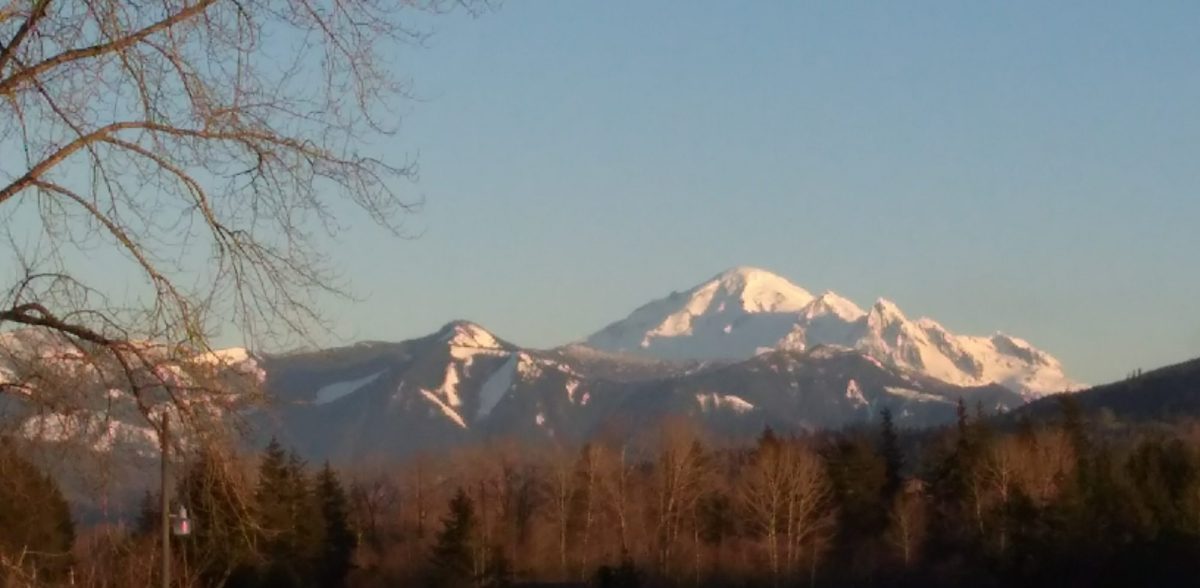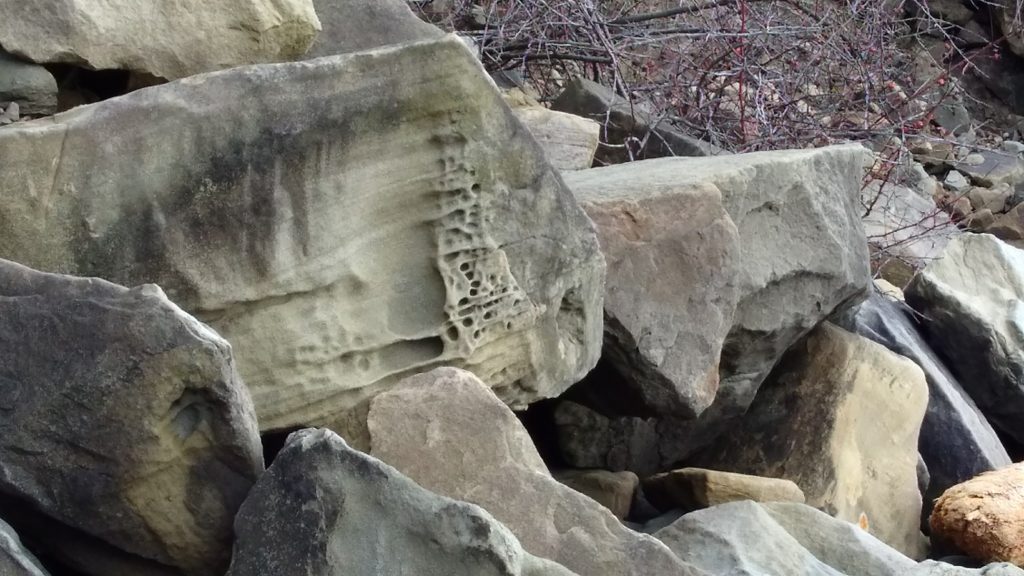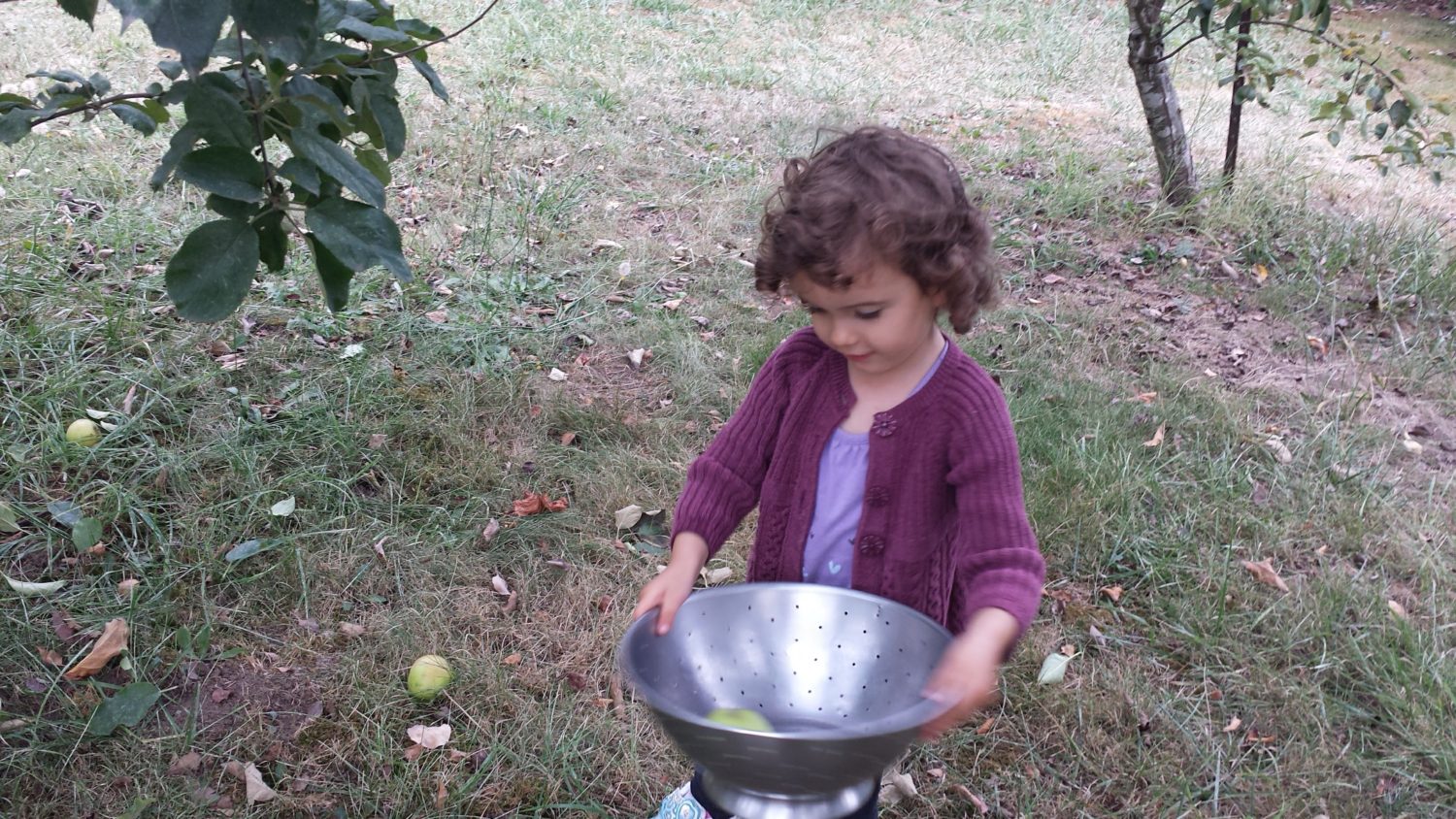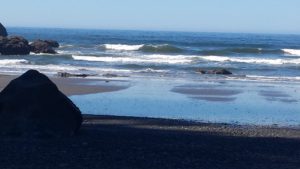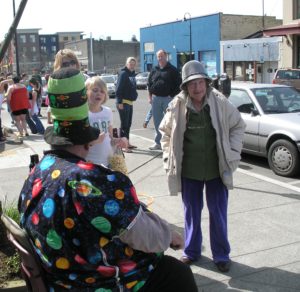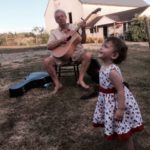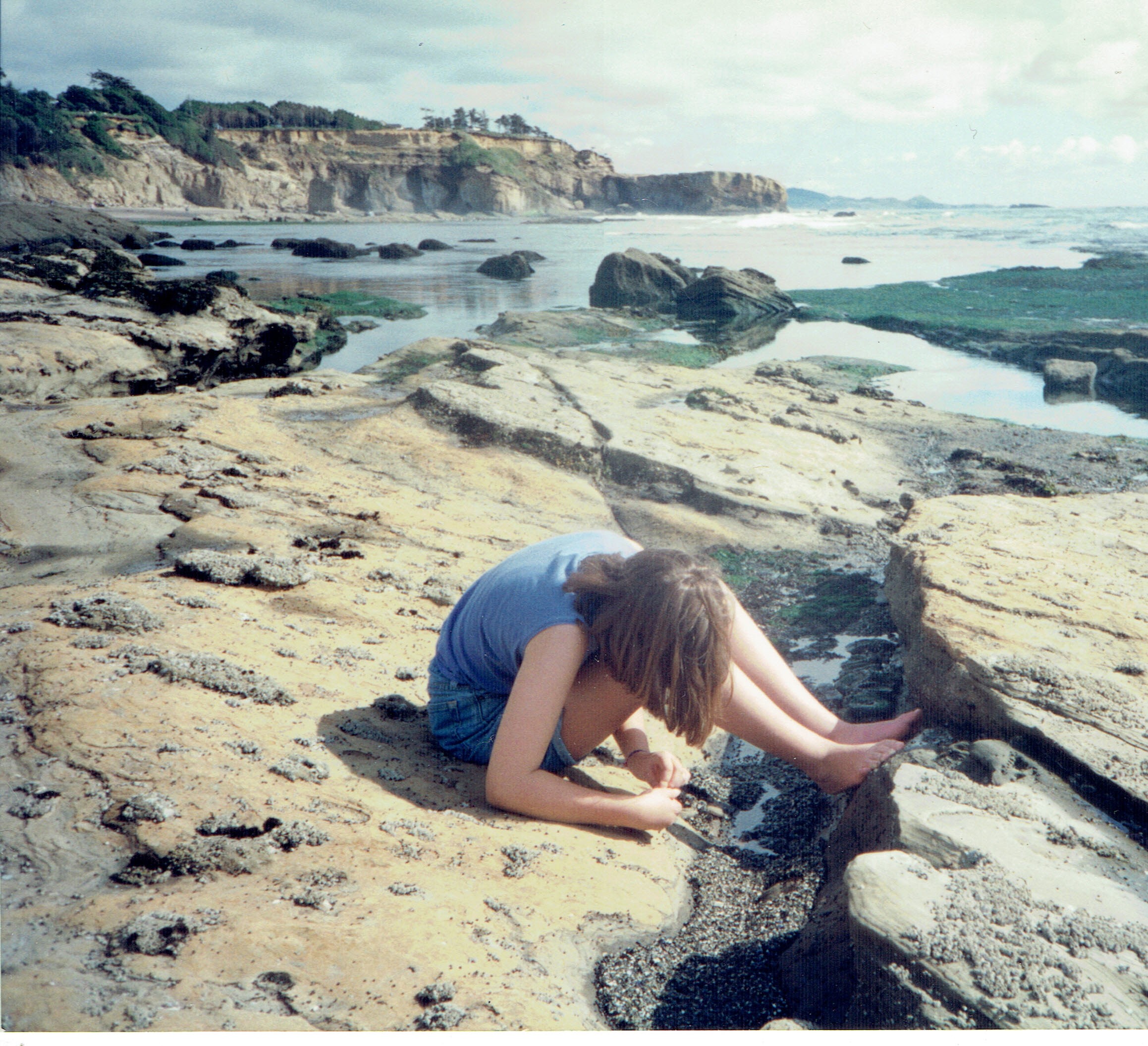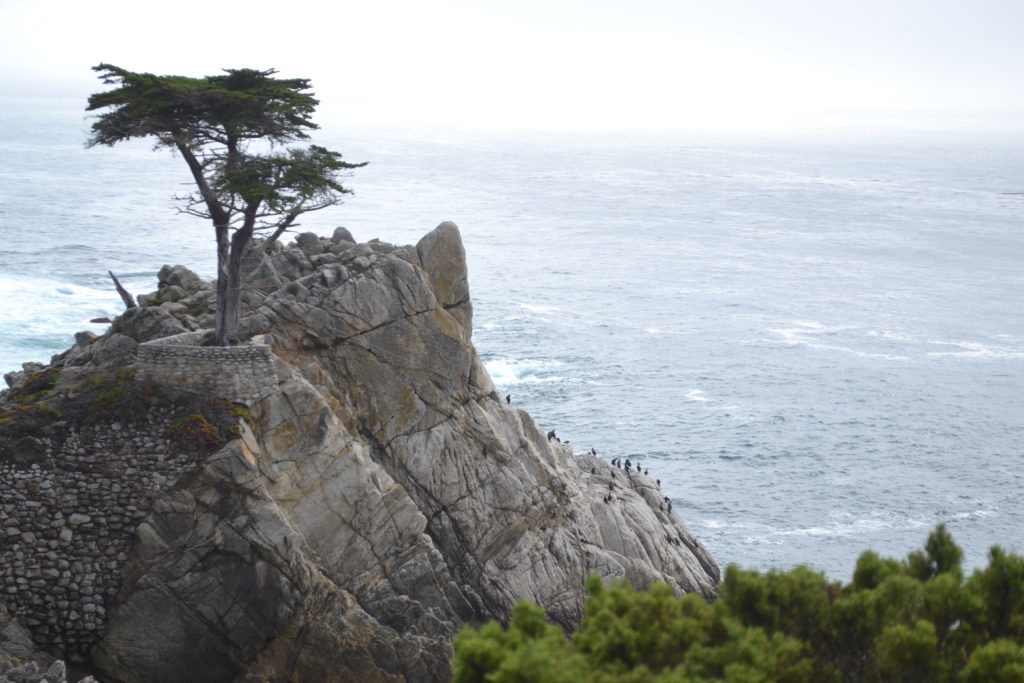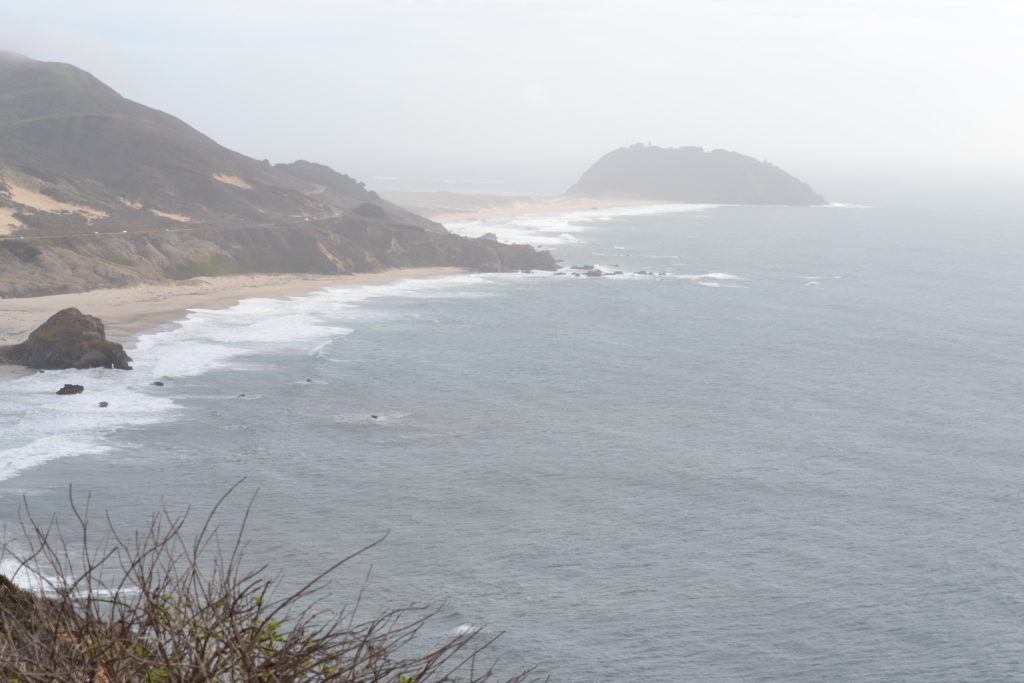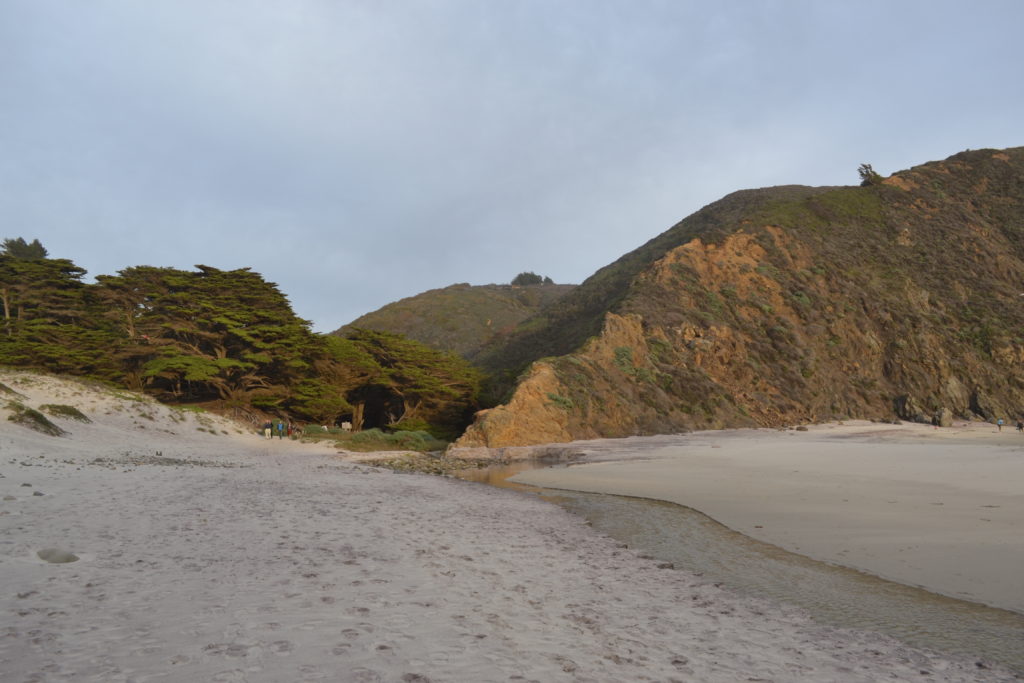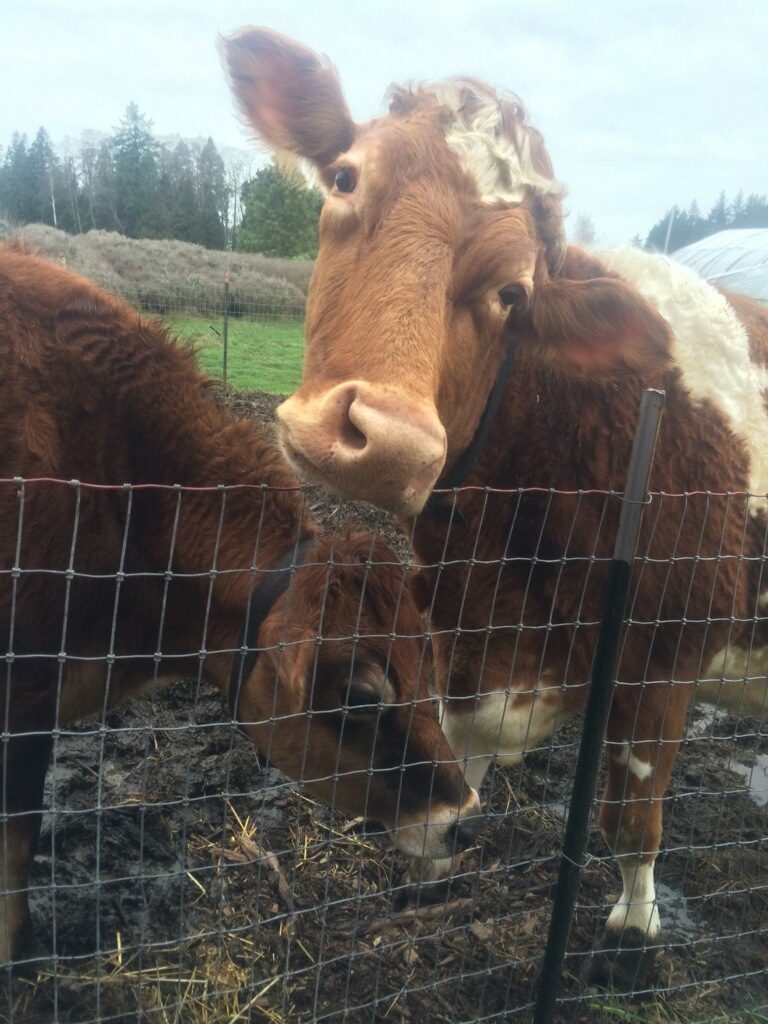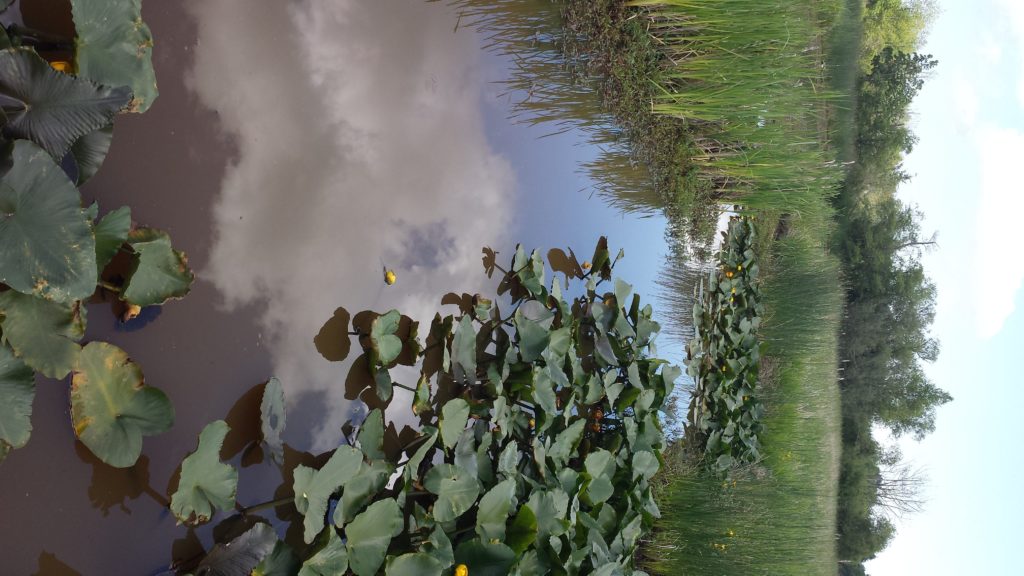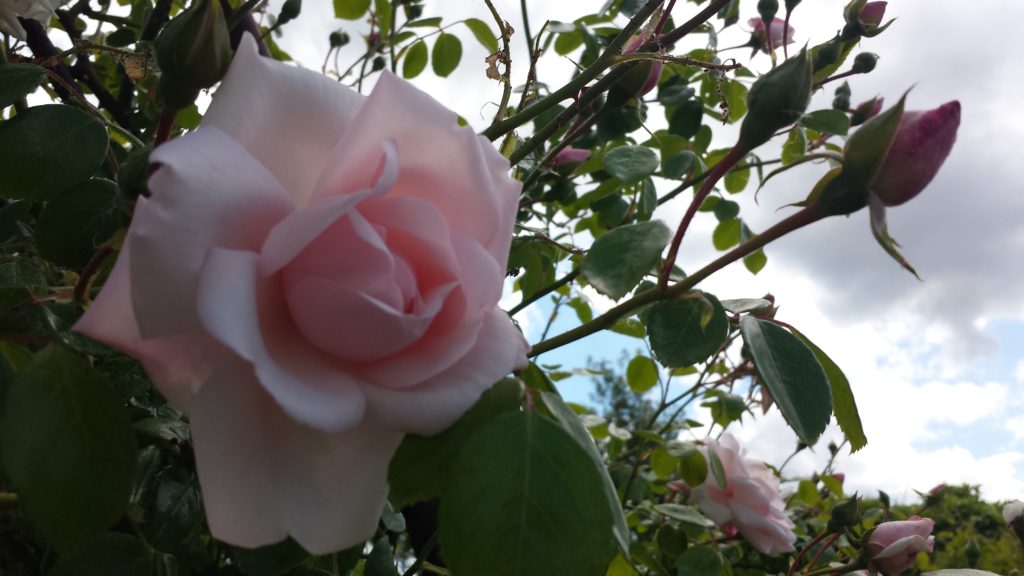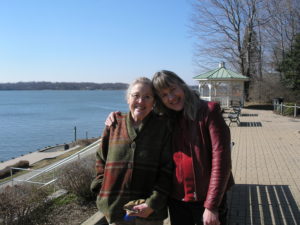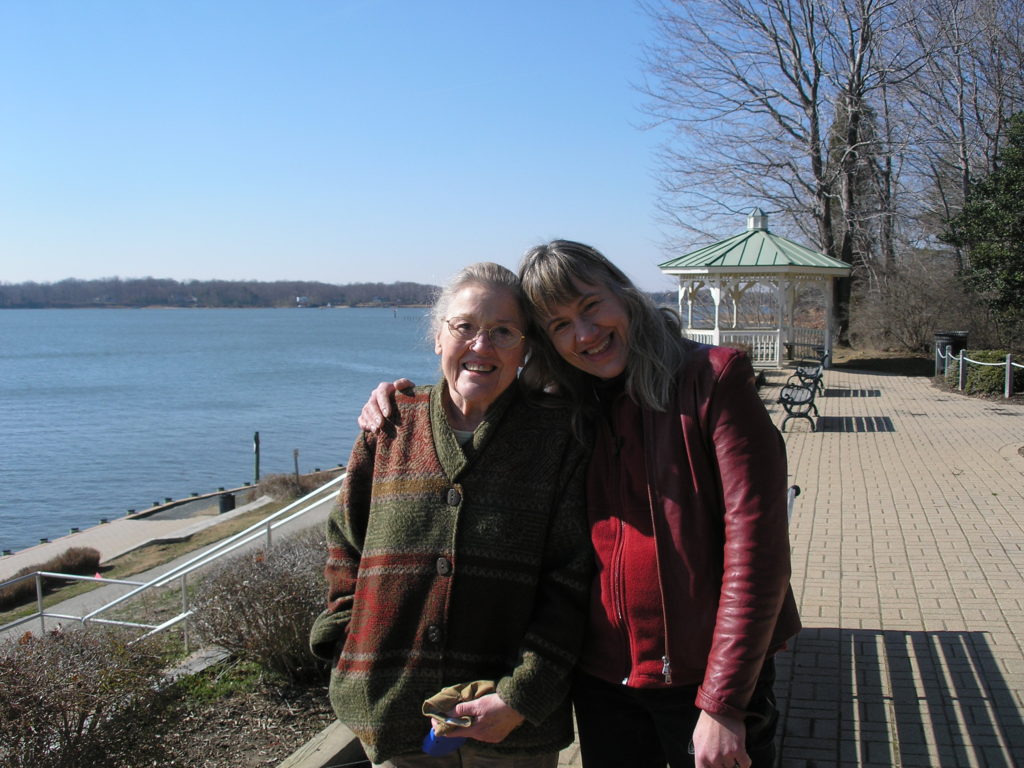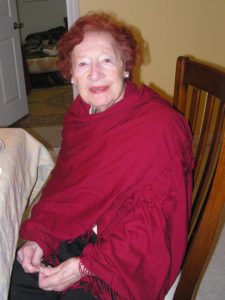
I’ll tell you the story of when I went back east to move my mother out of her house.
She had lived there for over fifty years. It was the house where I had grown up from the age of nine. It was a wonderful home in so many ways. It had a huge backyard with a free-running creek at the bottom. It had a swimming pool, many trees and plenty of places to play with no worries. Places to give imagination free reign. It was in a neighborhood with lots of kids and plenty of places to explore. I walked easily to my school where there were teachers whose memory I still treasure.There were two families just a block away where I spent many hours, welcomed as if I were just another of their kids.
The house itself was nothing special. It was what they called a “pre-fab” house back then, manufactured somewhere else and brought in pieces to be assembled on site. It was years old when we moved in and it hadn’t aged well, dark brown mottled linoleum cracking badly on the floor in the living room where the knotty pine boarded walls were sadly dated, their care long ago abandoned by my eighty-five-year-old mother. The black metal windows were gaping and weeping.
The plastic liner of the in-ground swimming pool was stained from algae and was cracking here and there. Despite its decay, my mother had managed to maintain it just enough to swim laps through the last summer. The yard was a bit overgrown despite the attentions of the teen-aged neighbor my mother paid to mow. The wildness of the overgrowth was appealing, at least to an eye now accustomed to the wild green of the Northwest, but I could no longer make my way through the brush to the brook beyond.
My mother had decided to sell the house about a year before so she could move into a senior community under construction nearby. Other of her friends were also waiting to move to the same planned complex. She dreamed of having an apartment there, eating with her friends and taking the bus to New York for the theater.
She’d started by trying to sell the house herself and was taken in by an older couple who, it turned out, were trying to turn an underhanded deal with a developer. She’d nearly gotten sued in the process. After that, she’d been convinced to hire a realtor.
The house had sold for a good price. She was of the generation that had barely been able to afford a home but bought anyway, held on to it through the rest of her life, and, because of the economy of the times, sold at a tremendous profit. She and my father had been fortunate to buy in a very desirable area in a very desirable town. He had killed himself with drinking twenty years before. The sale of the house would give her a way to live very comfortably for the rest of her life.
The people who bought it were clear they would tear it down and build something grand. She was already living in a temporary assisted living facility, waiting for the completion of the senior community where she wanted to move.
For the first time in my life on a visit “back home”, I’d rented a car at the airport, facing the drive down the Jersey Turnpike past the unmentionable smells of the refineries (called the armpit of New Jersey when I was growing up–now called worse) through New Brunswick on Route One and on into the oasis of Princeton.
I stopped first to see her for the first time since she moved from the house to a small studio assisted living. apartment It was a spacious place. The staff seemed acceptable. She showed me around and introduced me proudly to some of her new friends, including a man who’d become her dancing partner.
Exhausted already, I drove that evening to the old house. Using the key she’d given me, I opened up the wooden front door, hearing the string of Indian brass cowbells on the inside clang and tinkle as they had for fifty years. I never could sneak out at night through the front door.
I was back in the place I wander sometimes in my dreams, the smells of the cold water sitting in the window wells, the ticking of the kitchen clock, the view of the swimming pool and the back terrace out the big-paned window in the living room, the clanking of the glass door and the clinking of the crystal wine glasses in the blond wood danish modern hutch in the dining room as I walked past toward the bedrooms.
I put my suitcase on a chair in her bedroom where the twin beds were pushed together as they had been since my father had lived there. I took off the sheets from her bed and found some worn flowered sheets in the linen closet, smelling cold and slightly musty. I remade the bed in a fog and crawled in.
I had ten days.
It was August in central Jersey. Ninety degrees and eighty percent humidity. And it cools down to eighty degrees at night if you’re lucky. Not like my home in the Northwest where the summer days don’t get about eighty-five and the nights cool down to the sixties or even fifties.
I was up early the next morning, still tired, but energized, my plan clear in my head. I drove out to the old mall a couple of miles away and bought a couple of cartons of heavy duty black plastic garbage bags, a bucket, a new broom, a mop and bottles of cleaning solutions. I stopped at the liquor store and filled the rest of the rental car with boxes.
I was back to the house by nine. My goal was to get everything ready for an estate sale on the last Saturday of my stay and to have the whole house cleared out and ready for the new owners by the time I left two days after that. I started in the kitchen and worked my way through the laundry room to the studies and finally into the bedrooms.
I got up at seven every day, took a brief break to eat a couple of times a day and worked until ten or eleven at night. Several times I went for a run in the morning before starting in. Running was like trying to exercise in a sauna, but it became tolerable after my first two attempts. The best was a run along the canal that runs along the rowing lake, where the tropical weather was accompanied by exotic marsh blossoms, lush greenery and the pleasure of a little breeze from time to time. It was the way to keep moving through the exhaustion and the steady onslaught of emotions.
One or two nights the families where I’d had my second homes as a kid invited me for dinner. I ate well there and we basked for a bit in our mutual love, catching up on the lives of their children and grandchildren, my life and theirs, remembering the old days when we’d all sat around the same tables together.
By the skin of my teeth, I managed to get an ad for the sale into the community paper. After telling all the friends on her phone list about the sale, I realized I’d just missed the deadline for ads. The next day I spoke to the owner of the little paper. She’d known my mother and managed to squeak it into the ad section for the week as a favor. I called the man who’d collected junk and garbage in town since I could remember and scheduled a time for him to come and pick up the garbage at the curb the day before I left.
I’d talked to my mother’s best friend and conspired to make sure she didn’t bring my mother to “help” prepare for the sale. We agreed we wouldn’t tell her when the sale was to be held. I knew that if she came to the house it would take tremendous effort to get her to part with many of her things for a reasonable price. We’d spend most of the day fighting.
Over the next days, I madly threw out bags and bags of things I pulled from the kitchen cabinets, piles of rags and quarter boxes of detergents from the laundry room, cleaned out my father’s file cabinets, mailing myself his last manuscript in a box, labeling the remaining still usable stuff all over the house with colored stickers and some arbitrary price, ready for the estate sale.
It was a day before the sale. I’d tackled a lot of the crowd of things in the garage, bagging up pounds and pounds of mysterious chemicals, breaking apart old lawn chairs, plastic decorations, cleaning years of dust and spiders’ nests from the rafters, sweeping junk from every corner into piles and finally standing back to see it almost clean.
Inside, I’d filled some boxes with books and some small mementos I wanted to save and already mailed them back to myself in Washington state. The bags of garbage were growing into mountains along the road. I’d boxed up the few things my mother would still need and put them into one of the cleaned out bedrooms, leaving other usable clothes hanging in the closets for the estate sale.
As I sat in the living room, resting for a few moments, reviewing the still overwhelming remainder in my mind, it suddenly dawned on me I hadn’t yet even looked at the attic in the garage. I’d had a passing thought or two about it over the past few days, thinking maybe I’d just torch it. It was a place of horrors where anything could lurk back in some corner.
My father used to move things up the ladder to the wooden loft when no one knew what else to do with them. My Patty PlayPal doll, the size of a real two year old, old Christmas decorations including an artificial tree he’d bought on impulse, boxes of now moldy books, old clothes no one ever thought of again, piles of old office supplies including reams of carbon paper, my mother’s mimeograph sheets she’d type up at night for the next day’s class, decayed badminton nets and a box of birdies, all carefully reorganized by my father in the ’70s after he left his job at Boys’ Life. He’d meant to do it annually after that.
I climbed up the ladder and pulled myself over the edge into the loft. The old refrigerator hummed and clicked below at the back of the garage. It distracted me momentarily. I hadn’t yet opened that either. I shuddered involuntarily. Then I turned to look into the darkness of the attic.
Piles of indistinguishable stuff with no pathway in. I could see the top of my Patty PlayPal’s head and one of her eyes. The rest of her was buried in what appeared to be the remains of disintegrated cardboard boxes that had been transformed into large rats’ nests with the tops of basket weave Tiki torches sticking out above the hills.
I retreated down the ladder, careful of the broken rung, to stand and breathe in gulps of relatively uncontaminated air on the garage floor. This would take a good heavy-duty pair of gloves and probably a respirator.
I found the gloves on a shelf of the garage. No respirator and no time to go buy one. I remembered the rolls of gauze in the bathroom closet. That would have to do. Back into the house. I pulled the box of ancient gauze from the shelf and wound it around my face, covering my nose. I found some scissors and cut a length that would go around, again and again, to cover my mouth as needed.
Back up I went, armed with my gauze mask, gloves and a roll of black plastic bags. I started at the ladder and just kept bagging. Every once in awhile I came across an artifact that called up some nostalgic twinge. I threw it in a special black bag.
After a few hours of this my mind was reeling, my back ached and my head pounded. The gauze was wet with sweat and breath. Did I mention the heat made it sauna-like? I came down the ladder and some lunch and a cold beer and began to feel a big revived. I knew, however, I couldn’t bring myself to go back up that ladder again that day. What remained would have to wait until after the estate sale.
I looked around the living room, feeling a sense of satisfaction at having cleaned most of the house down to the last mopping. As I sat in front of the open casement window (with its specially designed screens with a sliding door that slid back so you could reach the lever that released the window so you could open it out), the slight breeze of the early evening was beginning to make me feel I could somehow push on. There were the last remaining hardback books on the bookshelves, the ones I wasn’t sure I wanted to spend the money to send and which the first edition bookseller had rejected, my eyes wandered down.
With a start, I realized I’d completely overlooked the cabinets at the bottom of the built-in shelves. Oh God! That’s where my mother had stashed the family photo albums, the ones with black paper pages, black and white photos stuck on the page with black picture frame imitation corners, the ones with PVC pages full of the color photos of my adolescence, friends, and family, and my parents’ late-life trips to Europe.
It was just at that moment that the old phone rang from the kitchen wall next to the cabinets with its distinctive loud clanging ring. It was my mother’s friend, Elaine. She had a lovely, richly inflected voice, with a slight undertone of the old south where she’d been raised.
“Your mother and I are here at her place, talking. She wants to come over tomorrow morning and go through her things with me before you sell anything.”
“She wants me to help he go through her clothes and choose the ones she still wants.”
No! No! My brain was screaming. She can’t! That will set me back days! I took a deep breath.
“Elaine? Could you bring her over now instead? That way she won’t be here when the sale starts.”
I knew Elaine was trying to think fast. She understood the dilemma. My mother clearly had the gun of guilt pressed to the side of her head. I could hear her turn to my mother.
“Pearl, it would really be so more convenient for me if we went over to the house now. I have things I have to do in the morning. We could spend an hour. That should be plenty of time to go through things.”
I could hear my mother in the background making slight objections about how it would certainly take more than an hour, but Elaine, brilliantly from my point of view, just poo-pooed the idea.
“It’s perfect to go now. Why didn’t we think of it before? Then Toni can have time for dinner before she finishes up for the day.”
She skillfully ended the negotiations with, “We’re on our way!” brightly.
I sighed with relief. Plan!
I went quickly to her bedroom where I’d packed up the clothes for her new apartment. I unpacked them and spread them on the bed. I carried armloads of clothes on hangers from her closet and put them in the closet of my old bedroom, closing the door firmly. I knew it usually stuck.
They arrived shortly after, my mother walking quickly up the flagstone path, determined, to the front door. We hugged and she went immediately to her bedroom, Elaine in tow looking back at me with a small wince and a slight shrug of her shoulders. I followed them.
Elaine had brought a big suitcase which she opened on the bed. My mother went for the bait, going through the clothes I’d laid out and putting them in the suitcase, one by one. I left them to go and work on the last bits of my mother’s old study, worrying in my head what the hell I was going to do in the next two days to empty out those living room cabinets and salvage the family photos.
I heard my mother call.
“What happened to my other dresses? I know there were a lot more things hanging in my closet. I need those things.”
I tried to fake it. “Oh no. You must be mistaken. I took everything out and laid it on the bed.”
“No.” she said. “They must be in another closet.” She turned and went through the door into my old room. She pulled on the glass knob of the closet. It was not budging.
“Open this for me,” she said.
I pulled at it and said, “It must be stuck again. Remember how it does that?”
She was insistent I open it.
“I guess we’ll have to call that man who does things around the house. It’s an emergency. I’m sure he’ll make time for me tonight.”
“I’ll try again,” I said, defeated.
I pulled on it with both hands, bracing myself with a foot against the wall. I nearly fell backward with my feigned effort as the door popped open.
“There they are!” she said, triumphantly.
Oy vey (punctuated by a sinking feeling at the end), was my internal response.
There was barely room in her apartment for the things I’d spread out, let along another closet full of sweaters and dresses that no longer fit. Elaine, the saint, said,
“Okay, Pearl. I think we need to sort through these things and make sure you can still wear them. Otherwise, you can give them to the women’s shelter.”
Perfect. I left them to it.
There was still some time to start on those cabinets. I steeled myself and opened the one closest to the windows. As the door opened, I heard squeaking and the smell of mouse urine and mouse shit wafted into the room. The deep closet was filled with shredded gift paper and the remains of a few rolls. Underneath, I could see two of the photo albums, one I recognized as the one with the photos from the family vacation to the Montreal World’s Fair the summer of 1967.
I closed the cabinet and sat down on the sofa. How could I possibly do anything with all that before I had to fly back home? My eyes teared.
Meanwhile, I heard Elaine calling,
“I think we’ve done what we can. Pearl has all the things we’ve decided she’ll need. She wants to come back for the sale tomorrow. She says she has to help sell the paintings and things.”
She turned her face towards mine and silently mouthed,
“Someone told her!”
She gave me a stage frown of sadness before turning back to my mother.
This was the worst news of the day. I’d thought that was settled. I would take care of it all. On her way in, she’d already stopped in front of her large framed copy of a Rouault painting, “Christ Mocked by Soldiers” (very good, but out-of-favor and a copy), and said,
“That’s worth far more than $75. Say $300.”
It may have been worth it, but I knew no one would pay it. I said,
“Elaine. I need your advice about something in the kitchen,” I took her by the arm and went to the far end of the kitchen.
I took her by the arm and went to the far end of the kitchen.
“Can we do something?”
I stood for a moment, studying her face for some sign of revelation. Nothing. I opened my mouth hoping something of use would materialize.
“How about if you think of a reason you couldn’t bring her till after three o’clock? Most of the stuff should be gone by then.”
She thought for a second or two and then said,
“I’ll tell her I have a dentist appointment at noon for a crown. I won’t be done until three.”
“Brilliant!” I said.
We all kissed good night. I got out the leather gloves, a double plastic bag and a rusty garden shovel and started in on the mouse nests.
A few months back, I was deeply engaged in my job managing a therapeutic foster care program in Northwest Washington, helping as I could on our small farm and trying to make sure my mother was safe in her home over three thousand miles away. One night I got a call from the emergency room of the hospital in Princeton.
“We have your mother here. You gave us your phone number a while back as the contact. She’s ready to go home. Please come and pick her up.”
When I explained I was in Washington state, they told me I needed to arrange for her transportation or they would have to discharge her to the street. She had no money with her having been brought by ambulance by the EMTs. I was rattled.
I asked what they suggested. After we ruled out all possibilities of friends coming to pick her up (at two am) they said to call a cab. Unfortunately, no cab companies were willing to drive her home on speculation that she would give them money when they got there, nor were they willing to take my credit card until, after an hour of calling cab company supervisors and raising hell, I bullied one into taking it.
After the same thing happened again not long after and she’d barely made it home, I’d flown out to Newark Airport, taken a limo to her home and arranged a meeting with the three neighbors who cared about her most. She was desperate to stay in her home, despite her encroaching dementia and the panic that set in at night from time to time, leading her to call 911 complaining of heart pain. I’d mailed her a special plasticized list of the phone numbers of all her friends and important contacts that she’d taped to the kitchen table. She often couldn’t remember it was there. Fortunately, she remembered where she’d put my number.
We all sat down together the next evening and worked up a schedule. Each person would take a turn checking in on her in the morning and evening to make sure she’d taken the medication in her pill organizer and had something to eat and drink. One was already taking her grocery shopping every week, and making sure she had enough of the things she liked to eat and could make easily. I would call her every day and check in. She had stupendous neighbors. She’d been one herself for so many years. I gave all the neighbors my cell number as a backup, should anything go wrong.
She approved it all after I made it clear that the alternative seemed to be moving to an assisted living facility.
About a week after I got back to the west coast, I started receiving calls from the neighbor across the street. He was worried that he’d seen her out quite late a couple of nights, walking out into the street. He’d come across and talked to her and she had seemed to be okay, bright and alert, but unsure what she was doing out in the dark. He said he didn’t mind at all keeping an extra eye out at night. She seemed to be happier than she’d been for some time. Once she’d come across to visit him, knocking on the door to his office where she knew he’d be during the day. They’d had a lovely visit. He’d taken her on outings with his eight-year-old and they had spent several happy hours, she reminded of the grand-mothering she was so good at.
A week or two later, I got a call again from the hospital. A neighbor had driven her to the emergency room in the middle of the night after she had come knocking on their door after midnight, asking if they had any food they could feed her since she had nothing in the house and was starving. Her cabinets were stocked with food.
They had checked her out and there were no critical medical issues, but, since she’d been to the emergency room a few times over recent months, they had admitted her to the hospital to check her out more thoroughly. It had become clear to the doctor that she was not able to safely function in her home on her own. She was refusing to be discharged to a nursing home, which as the only place the doctor could refer her. He told me he could not discharge her from the hospital to her home. I would need to arrange a discharge to an assisted living facility and make sure she got there.
I called into work and took off the next two days for starters. I got on the phone. After hours of chasing people at different facilities, talking to my mother in the hospital about the alternatives, we found one that would take her until the place she’d been waiting for opened. I had flown back for the long weekend to move her in, just barely having time to get a few pieces of furniture and some clothes into the studio apartment before I caught the limo back to the airport.
Now the house where she had spent fifty years of her life was sold. That night before the day of the sale, I finally to bed sometime after midnight after making my way through all the living room cabinets, finding the albums and piling them on the floor until there was a tall tower.
Many of the black paper pages of the albums from the ’40s and ’50s had been chewed by the mice to make soft nests. Pages of photos were beyond salvage. I’d pulled page after page out of the ruined albums and filled cartons with the photos to go through when they arrived back in Washington. I was totally exhausted at the end of it, too tired to even shower off the clinging mouse smell. I turned on the ancient, second-hand Sears casement window air conditioner in my mother’s bedroom, fell into my mother’s bed and immediately slept.
I got up at seven to the sound of my mother’s old folding travel alarm. The sale started at nine am and I knew from what friends had told me that dealers would start arriving at eight to stand outside the door. I made myself a quick breakfast of the real bagels I’d bought at the store on the highway where they brought them from New York every morning, smeared liberally with the Philly cream cheese I’d bought at the A&P. The day was already hot.
As predicted, a small group of people arrived around eight and started walking around looking at things in the front yard, kicking the flagstones to see if they were loose and sitting on the wooden rails of the garden fence drinking coffee in white cardboard cups.
I opened the door at nine am. The first woman through the door said,
“How much for those flagstones on the front walk?”
I said I didn’t think I could sell them. She said “Eh! The new owner’s going to rip everything out anyway.”
I told her I’d check. By the end of the day, I’d sold them to her for $75 a piece.
The next person in was a man who asked how much I wanted for the brass knocker on the front door. I told him to come back later in the day. He’d left at ten a.m., carting away several boxes full of glassware and kitchen items saying he’d be back. In the end, he paid me $65 and pried it off the door with a couple of screwdrivers.
People came in a steady, thin stream for hours. Several people stayed for much of the day, leaving for lunch and coming back. Two roamed around the whole house, looking for things I hadn’t put up for sale, hoping they’d find some treasure they could wheedle out of me.
In the later afternoon, a pair of them came to me where I’d been wheeling-and-dealing with a young, long-haired man who’d come in with hungry eyes wanting the Rouault print. The first time when I’d told him the price he’d lingered for a long time, standing in the living room, looking around blankly. He’d asked again if I’d take less. When I’d said no, he waited, still standing, for a few long moments, then left. An hour later he’d returned, willing to pay.
The pair who’d been hanging around had asked earlier if they could rummage around some more in the garage. I thought, heck, why not and told them they could.
They’d already found some garden tools they wanted, but they were on the hunt for “antiques”. They’d climbed up the ladder and seen the attic above the garage. They wanted to look around and see if they could find anything. I told them it was a horrible mess, but they insisted they’d seen worse.
Now they were coming back from the garage, the woman carrying a Betsy Wetsie doll, discolored with mold, and the older man triumphantly holding the Patty Playpal out in front of him. “What is this and how much do you want for it?” he said. The woman said she’d give me $10 for the doll that pees when you give it water from a plastic bottle.
My mother showed up after all the paintings were sold, the wrought iron patio set was gone and most of the house was cleaned out. She wandered around touching things, looking a bit sad and asking what I’d gotten for the heavy Jacobean style table, the Rouault print, the throw rug from the living room. I made up inflated figures and showed her the piles of bills in the cash box. She brightened a bit, but complaining a bit more about the prices gave her some sense of control over the thing. She Elaine managed to get her out again by taking her to an early Chinese dinner before she would have to witness the dealers returning to clean things out at the end of the day.
I’d called the realtor who’d sold the house and asked her about the flagstones and door knocker. She’d said the new owners did, indeed, plan to bulldoze the whole thing, so it was all fair game. They brought crowbars and shovels and dug them up and hauled them away in a battered pick-up truck along with the azaleas that had lined the post fence along the walk. It was then I felt a real moldy lump in my chest and was glad my mother wasn’t there to see the devastation.
I’d even lined up a couple who would come the morning of my departure to buy the bed I was sleeping in. I’d bagged up the remaining clothes and everything else that hadn’t sold and put them at the curb. It wasn’t until the next day when I was packing my own bag that I realized someone had made off with the nice field jacket my sweetheart had bought me that year. That was when the whole thing washed over me. I sat down heavily on the edge of the bed, indulged in a cry and let myself feel drained.
Well, everything was gone. The incredible lightness of being.
I went for dinner that night to my home of our Jewish neighbors and ate, sitting in the air-conditioned bliss of her dining room, once again, Anita’s pot roast, the best in the world. She even poured me some decent wine.
The next day was the last. The man came to haul away the mountain of garbage bags and the old broken down washer and dryer. Our friend across the street helped me load his van with a huge abstract painting my parents had been given by their friend, an artist in Cape Cod before I was born. It had hung in each living room they’d had ever since. I wasn’t that fond of it as a painting, but I couldn’t really part with it as an object of lore and family connection.
Then the two Nakashima sofas went in the van and we drove to the mail store where I shipped them home for an inordinate price. The painting spent its remaining years propped in a stall in our barn until it was ceremoniously burned when we cleaned the barn for the sale of our own property. The sofas went to a friend who finally was able to buy himself a decent home with a VA loan after living for years in a moldy trailer.
My mother lived in comfort for ten more years off the proceeds from the sale of the home she and my father bought for thirty-two thousand dollars in 1960. That doesn’t happen these days. It was a stretch for them back then. The first house after twenty-one years of marriage. They were sick of landlords. I remember.
After a while, we moved her out to be with us on the west coast. She would say,
“Mountains! Water! We don’t have these in Brooklyn!”
When I would remind her that she hadn’t lived in Brooklyn for fifty-five years but had lived, instead, in Princeton, where she had many good friends, she’d say,
“No! I’ve lived in Brooklyn all my life!”
I spread her ashes on Mt. Hood, the volcanic peak she came to love. When we would drive together back from my house in the country and catch sight of the gleaming white peak, standing so majestically against the blue sky, we’d turn to each other in the car and launch into the chorus of “Bali Hai”. We’d get as far as the first “Come away!” before dissolving into laughter like the two little girls we really were.
